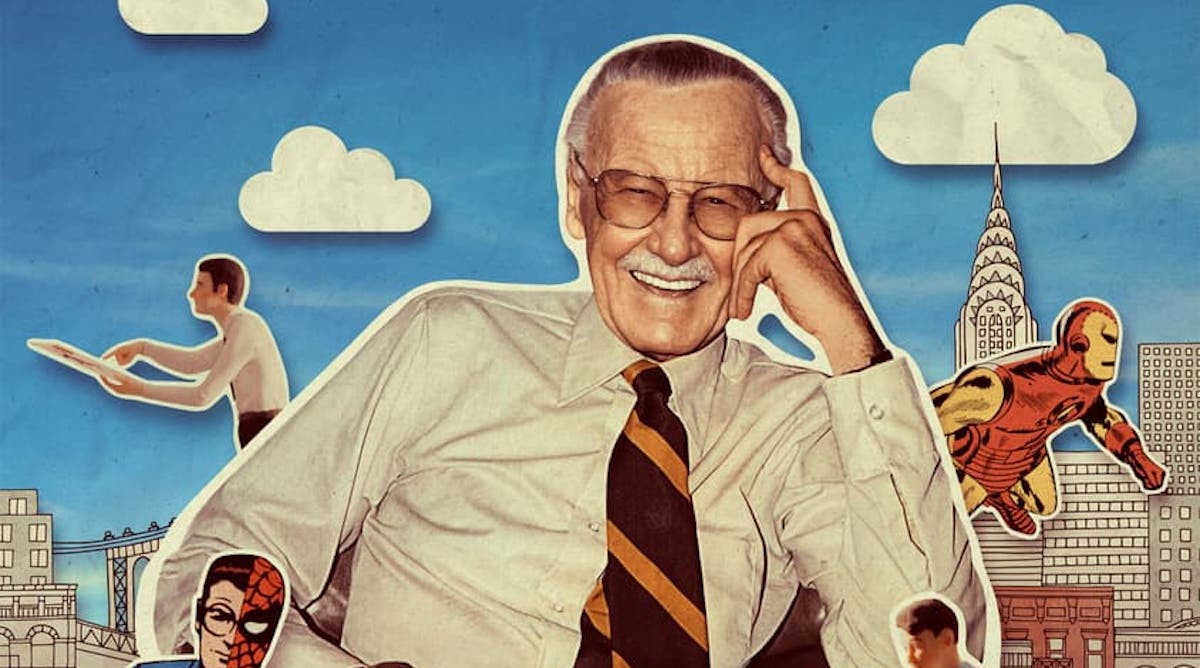The ‘Stan Lee’ Documentary Hulk-Smashes the Most Annoying Myth About Marvel

Once, when I was a teenager, the guy I was dating—a huge Marvel fan and aspiring comic book artist—got to meet Stan Lee at a book signing. After the brief encounter, during which Lee scrawled “Excelsior!” in my boyfriend’s sketchbook, my boyfriend choked up.
“I just met Stan Lee,” he whispered, wiping tears from his eyes.
Such is the mystique that Stan Lee has long held in the comics world. Lee’s name has long been synonymous with Marvel, and he’s often credited as the creator of such legendary heroes as the Fantastic Four and Spider-Man—a reputation that, before his passing in 2018, he wholeheartedly embraced.
Stan Lee, the new Disney+ documentary about Lee and his career, will almost certainly appeal to fans of the comics titan. The documentary flies through Lee’s childhood in New York City, his rise from a teenage assistant at Timely Comics to the figurehead of Marvel, and the creation of many of Marvel’s most beloved characters. The documentary also includes interesting stories like Lee’s challenge to the Comics Code Authority, which refused to put its seal on an anti-drug Spider-Man story arc. Fans of the Marvel Cinematic Universe get a few morsels, too, with some behind-the-scenes footage of Lee’s cameos in MCU films.
Of course, like so many revered public figures, Lee also generated his share of controversy. For instance, Marvel artists Jack Kirby and Steve Ditko both accused Lee of taking unearned credit for their work. The documentary largely paints a rosy picture of Lee, but to its credit, it does include a charged phone call between Lee and Kirby on a call-in radio show. The documentary also mentions that both Ditko and Kirby quit Marvel under Lee’s watch, which is a telling detail. I don’t think any viewers expect a Disney+ documentary to really dig deep into uncomfortable truths about one of its biggest icons, but at least it throws in a brief nod to those issues.
My personal favorite part of the documentary is its confrontation of a myth that has gained traction in the less savory corners of Marvel’s fandom. As the MCU includes more marginalized characters, like Ms. Marvel, She-Hulk, and Monica Rambeau, some fans have accused Marvel of “going woke,” or turning into the “M-She-U.” (Honestly, an actual M-She-U would be freaking awesome.) “Marvel has never been political before,” they groan, taking their grievances to Twitter and the comment sections of blogs. “Why is it suddenly so obsessed with all this social justice stuff?”
Stan Lee explains, in Stan Lee’s own words, that Marvel has had a social justice bent for decades. Detailing the creation of the villain Hate-Monger, and the heroes the X-Men and Black Panther, Lee explains in archival recordings that he was explicitly trying to convey an “anti-bigotry theme” through the comics he wrote. “In all of our books, we try to find some little moral besides running around and fighting,” he says.
Admittedly, Stan Lee doesn’t really break much new ground in our understanding of comics history. If you’re a Stan Lee fan, though, you might find it a breezy way to pass an hour and a half. And if you’re in the “comics aren’t political” camp, it may give you a badly needed wake-up call.
(featured image: Disney+)
Have a tip we should know? tips@themarysue.com